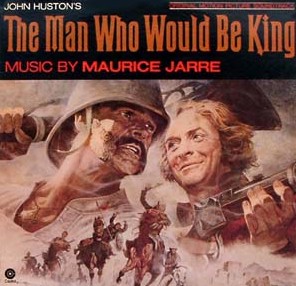
The Battle of Maiwand during the Second Anglo-Afghan War in 1880 was one of the decisive battles of the Great Game, with Britain, outnumbered ten to one, suffering a heavy defeat. Bobbie, the dog in the foreground, was one of the few survivors.
For much of the nineteenth century, Russia and Britain battled for control of Central Asia. The rivalry was known as The Great Game after Rudyard Kipling popularised the term in his 1901 novel, Kim.
A minor incident of The Great Game occurred in 1838 when Josiah Harlan, an American adventurer, soldier and unqualified surgeon led an army into the remote Ghor region of Afghanistan intent on securing some form of power. Harlan had already spent many years travelling through India and Afghanistan and had shown a remarkable ability to acquire influence and escape from trouble using little more than his wits.
In Ghor, he met the ruler of the region and impressed him so much that he conferred on Harlan the title of Prince of Ghor in perpetuity. Harlan later wound up back in the US where he fought in the Civil War and worked as a doctor (still without qualifications), dying of tuberculosis in 1871.
In 1888, Kipling wrote his short story, The Man Who Would Be King, based on Harlan’s adventures which was adapted into the 1975 film of the same name starring Michael Caine and Sean Connery (director John Huston’s first three choices for the lead role pair were Humphrey Bogart and Clark Gable, Burt Lancaster and Kirk Douglas, and Robert Redford and Paul Newman.) Three years later, George A. Romero released his second zombie film, Dawn of the Dead. One of the stars of the film, Scott Reiniger, was the great-great-great-grandson of Josiah Harlan. Rediscovered in 2004, the document signed by Harlan and the ruler of Ghor is still in effect, technically allowing Reiniger to claim the title of Prince of Ghor. To date, he has declined to do so.
Three years later, George A. Romero released his second zombie film, Dawn of the Dead. One of the stars of the film, Scott Reiniger, was the great-great-great-grandson of Josiah Harlan. Rediscovered in 2004, the document signed by Harlan and the ruler of Ghor is still in effect, technically allowing Reiniger to claim the title of Prince of Ghor. To date, he has declined to do so.

